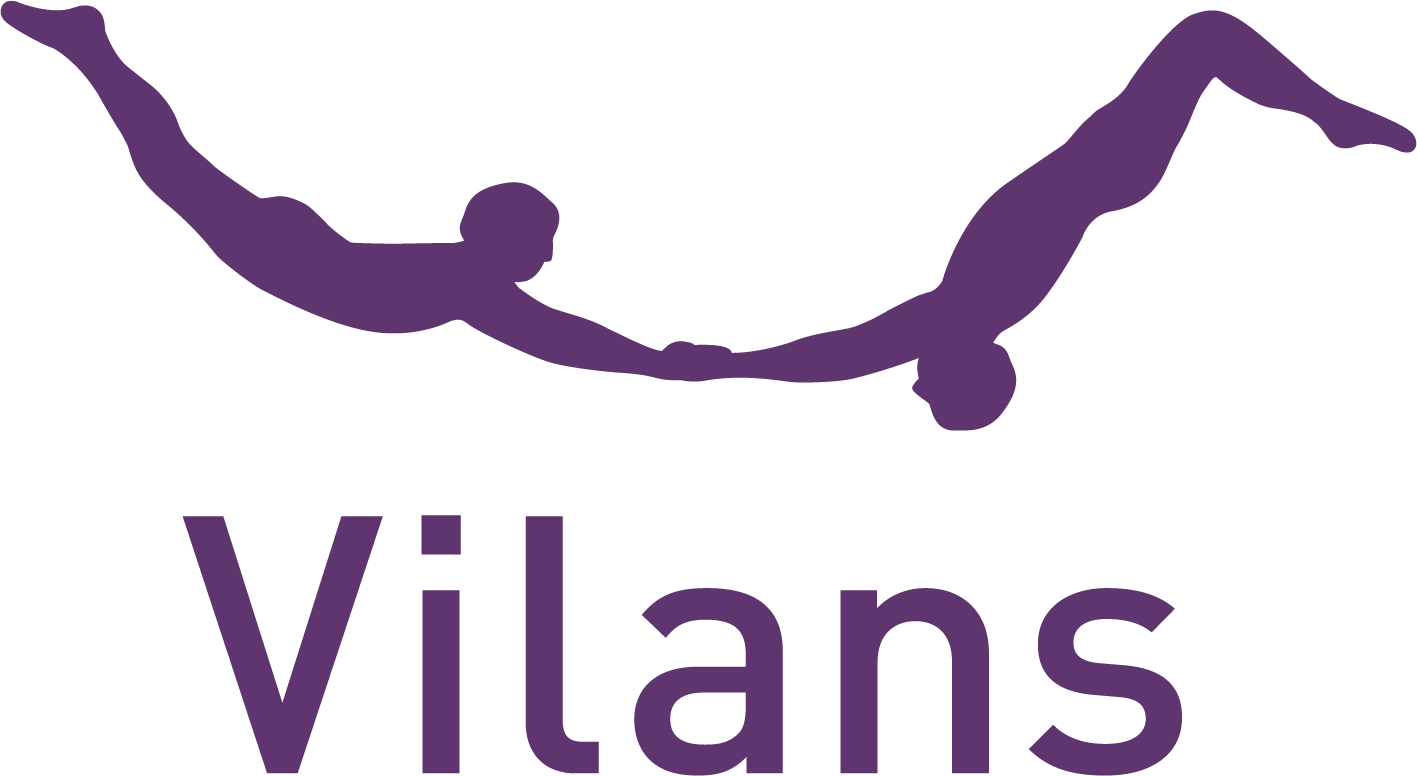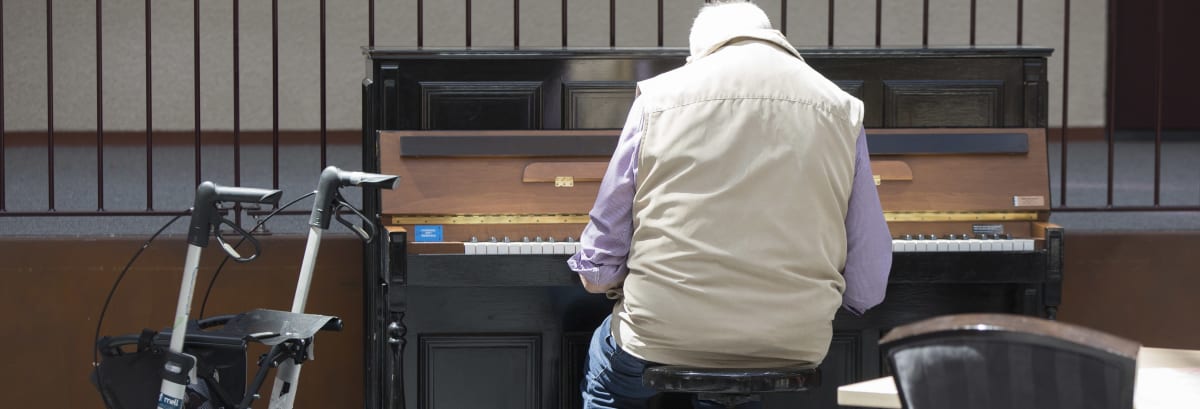Portrait Series Reablement: 'Self-reliance is about quality of life, and that lies in the little things'
Published on: 26-07-2024
Care organizations are working on the basis of 'reablement' to enhance the self-reliance, autonomy, and independence of their residents. But how do you best support clients in this? And how do care workers adapt to working more 'hands-off'? In this portrait series, we take you through care organizations that are implementing reablement in their practice. This time, we speak with a district nurse working at Careaz.
Why do you think it is important to work on self-reliance?
"I always start with the individual's own control and strength. That is the essence of working from reablement. When people make decisions about their own lives, it increases their quality of life. They become happier and look at life more positively. We help only where necessary. If people are dependent, it limits their lives. Their possibilities become increasingly restricted, and they deteriorate further. I really want to prevent that."
What do you experience in your practice?
"When I started working as a district nurse here, my colleagues used to enter clients' homes with a key. You don't enter as a professional, but as a guest. This might make you feel more comfortable with the client. But you are a professional, not a family member. Moreover, the client has to move when they open the door. Two birds with one stone! Now, clients open the door themselves whenever possible."
"I once went with someone to a drop-in facility to literally help her over the threshold. The first contact often helps to initiate a second contact. This lady was very grateful; the step was too big for her to take alone. Through my intensive involvement, this lady gained more and more confidence. She let me into her life and allowed me to help her. Now I see her cycling, and that makes me happy."
What is reablement?
Older people are living at home longer and want to manage as well as possible. 'Reablement' has therefore become a popular topic in the Dutch elderly care sector in recent years. Some see it as old wine in new bottles. Others view reablement as a beautiful modern development. But we can agree that working towards autonomy, self-direction, and self-reliance of the elderly is a great way to make elderly care more personal and life-oriented. That's precisely what we aim to achieve with reablement. Care professionals, together with the elderly, look at what they would like to be able to do themselves again. This is done in home care but increasingly in nursing homes as well. Does the client want to be less dependent on the timing of home care visits? Do they want to do their shopping again? Resume an old hobby? A plan is then made, considering exercises, aids, and technology to make that possible.
What inspires you to stimulate self-reliance?
"A lady was left alone when her husband died. She had taken care of her husband intensively with our help. We had already suggested that she could undertake something for herself, but she was not open to it at that time. After her husband's death, she didn't know what to do. The world outside her door was no longer her world. She had little contact with others and kept the door closed. I should have pushed more, challenging her more. Another example from my time in the hospital has stuck with me. People with diabetes came to be adjusted to insulin. The first thing they did was put on pajamas and lie in bed. That was a trigger for me: that's not how it works! We do it like at home and then get to work. My eye-opener at that moment: you have a condition, but you are not sick. You need to get the most out of it."
How do you stimulate self-reliance?
"I ask the client to rate their quality of life on a scale of 1 to 10. People sometimes find this difficult, but it provides insight for both me and the client. If someone gives their life a 7 and is satisfied with it, I ask what is needed to maintain that 7. Asking for this rating always works, even for relatives. For example, if a daughter is worried about her declining mother, but the mother rates her life an 8.5. That can change a lot for the daughter, making her realize she needs to worry less."
"If someone rates their life a 5, I ask if they are shocked by that rating. If they are, it opens up a space for a conversation. I ask why they are shocked and give them time to think about it. I make an appointment to revisit this in a week, allowing the person to accept their own emotions. I then ask what is needed to go from a 5 to a 5.5. What small steps can we take? In the next conversation, we make those small steps clear, such as having coffee at the corner café. If someone needs time to get used to a volunteer, I often go along until they feel safe and comfortable with the new person or activity."
Daily practice is important
"Being self-reliant is always my message. If someone can only wash the tip of their nose, we focus on that. Keep doing what you can. By doing things themselves, people train not only their brains but also their bodies. If we aim to keep people living at home longer, we must do this."
"Working from reablement towards self-reliance gives people more freedom and quality of life. By being able to do things themselves again, they train both their brains and bodies. If we aim to keep people living at home longer, we must do this."
How do you and your team approach self-reliance from reablement?
"I talk to my team. What are our goals? How do we support people to live at home as long as possible? We have biweekly client meetings with the team, where we discuss special cases and agreements with clients. I see that some staff members follow up with clients, asking how an appointment with a volunteer went. Frequent meetings are necessary to learn from each other, stay informed, and keep all agreements current. If one colleague achieves something that another couldn't, we ask how they did it. We want to keep the momentum, keep it alive and current, and learn from each other's strengths."
"During an intake with a woman with a severe chronic condition, I felt enormous resistance. She didn't want to change and wasn't happy with her current life. I wasn't sure if we could establish a good contact. The contact's goal was to reduce her risk of falling. I tell my team that we will see how this unfolds step by step at her pace. This woman understood what was needed but was afraid of losing her autonomy due to the care. I explained that she would actually stay self-reliant longer and retain her autonomy. Because she was unhappy, we felt tempted to intervene. But she didn't want that. So, we supported her in small ways."
"I keep the passion alive in my team by:
- Making small successes visible: people who suddenly no longer need care when it seemed impossible. These people lead richer lives.
- Celebrating successes with the team by appreciating each other. This is vital: we are a team with our own responsibilities, but together we provide good care! We tell each other: we did well together, we succeeded!"
What tips do you have for colleagues?
- Set goals with clients. It provides clarity in execution and helps to avoid unnecessarily taking over tasks.
- Everything a client can do themselves provides mobility and makes them physically stronger, necessary for staying at home.
- Ask the physiotherapist and occupational therapist to see how someone can continue to do tasks independently as long as possible. For example, if someone is afraid to step into the shower cabin.
- Pay attention to the client's social aspects: if you don't feel comfortable in your own skin , your social connection could grow weaker. Ask what someone would like to do (again).
- If you don't want to develop further in your mobility, you also lose other abilities. Explain this to the client and why it is important.
- Staying mobile keeps you physically strong. This makes you mentally healthier, happier, and more open to others. This makes you more social, too. Be aware of this always.






